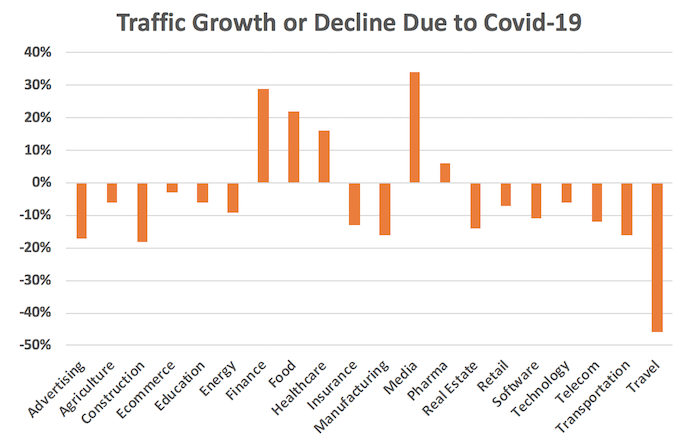5 Key Tips for SME Real Estate Businesses to Cope With the Long Term Impact of the COVID-19 Pandemic
Great news, confinement is coming to an end in your area… Cases are slowly coming down in certain central European countries and you are envisioning your “back to normal” on your business: Back to the office, events, open doors, property purchase visits.
Well, it may not be as simple as you thought. Yes, deconfinement is happening, but the risk of a 2nd wave is very real. And even more, concerning is the psychological scarring that your customers will have to face. Fear of engagement, purchase, and visits are all factors that have way more impact on the business than the actual virus.
Many small to medium real estate businesses that planned for a short confinement time may need to plan for a 12 – 18-month ride. Truth is the world has changed and it’s time to come to terms with the fact you need to possibly look at your business differently for the long term. This not concerns whether or not we will get a vaccine soon or whether the summer will ease things off.
So what does this mean for businesses that operate mainly offline, such as those in the real estate and property sector? According to statistics, even the online part of the real estate sector suffered a drop in traffic of around 15%.

La croissance ou la baisse du trafic due au COVID-19
Faced with this particular situation, we have to understand that adaptability and flexibility should be the ultimate goal to be achieved. In order to bounce back and ensure, not only economic recovery but sustainability, several methods can now be put in place to ensure an effective restoration. Indeed, in the long term, these approaches will benefit your business.
Here are 5 useful tips on how to survive this period and become even better as a result.
Digitize your professional environment to optimize time
The current crisis is temporary, despite the many fears it invokes while we’re right in the epicenter of it. With this in mind, we should also prepare for the future, once the COVID19 is over and businesses are once again allowed to function as before.
One of the ways to prepare your business for the long run is to utilize the available digital tools around us that make our daily lives easier. The digital workspace is a real value-added technology that should not be ignored.
Digitization offers practically unlimited possibilities for communication, dematerialization, and performance enhancement. It also enables business organizations’ agility.
Here are a few real estate-specific digitization tools:
- Email marketing campaign. If you haven’t tapped into that niche yet, it might be a good thing to consider. According to Smart Insights, the average open rate for Real Estate business emails is 19.17%, but if you offer your customers value-added information, then it can transform into a powerful instrument for brand awareness and even potential leads.
- Virtual tours. When your clients are at home and can’t come to the location of your property development to take a look at the layout or even meet with you to go over the plans, consider creating a virtual tour for your property. With technologies available right now, you don’t need any specific equipment for it, but it certainly would be helpful to potential customers.
- Online home configurator for your real estate development. With this tool, people can customize their home to match their personal likes and preferences – and it doesn’t require them to go anywhere. It also helps to minimize the stress of not knowing how the house would look like once it’s done (and we can all agree, a little less stress is a great thing during the world’s situation right now.) There are a few of them available on the market, for example, Wild Dots’ flagship product called Evohom. You can request a free demo right here.
Besides PropTech-specific digitization tools, here are a few tools for all business’ processes:
- Communication. While the companies cannot gather for traditional meetings, there are plenty of online conferencing tools like Zoom, Google Hangouts, and Skype that allow staying in touch with the team with a video instead of just emails and messengers.
- Task management. If you haven’t used anything digital for task management, now it’s definitely the time to do it so that all your team is on board with what’s expected. Just like with communication, there are many tools for that, like Asana or Trello.
- Lead management. We have been working with HubSpot for a long while now and we recommend this platform since it has numerous useful features and all are bundled up together.
Prepare for the post-crisis period financially
Although this health crisis shook businesses and various measures were taken to support them during the economic downturn, the question is how to bounce back after this is over.
The plan we need to follow is deceptively simple and straightforward:
- First, determine the extent of the damage
- Develop a detailed action plan by carefully monitoring the situation and its impact, and then
- Visualize a return to normal.
Its simplicity doesn’t mean, however, that it will be an easy thing to do. Get together (online) with your key decision-makers in the company and brainstorm various scenarios and ways to minimize expenses and costs that would harm neither your key business activities nor your team (if possible). Reforecast your business with reduced revenue projections (with intervals of 10% up to 50% reduction) and try to plan ways to alleviate the impact over time.
However, remember also that while “The Winter is Coming,” it will also pass and you’ll need people who are loyal to you and know your business from the inside.
Remain optimistic and reassure your business partners, teams, and customers that this is just a passing fad. We will get out of this bubble and move forward. To do it as painlessly as possible requires contact, trust, and transparency.
Stay transparent, it’s one of the levers of business performance

Highlighting internal company communications and exchanges can increase trust. What we are looking for here is to show that we need to prioritize others by sharing our knowledge.
Transparency is aimed at putting people first. There are three main “players” businesses should be transparent with:
- Business partners. These are your key managers and people, who help you make decisions. Wise and weighted decisions are only possible when people know the situation and the facts.
- Employees. Your team is one of your most important assets. Use this time of the quarantine to build and strengthen the loyalty in your employees. One of the ways to do it is to be transparent with them as well about the important changes within the company. Surprises don’t really fit well in times of the stress, and the ramifications would take a lot of resources to take care of. This transparency is designed to allow employees to participate more deeply and get better feedback by sharing their emotions. After this crisis, this will translate directly into improved performance.
- Clients. Clients are people, too. In the real estate industry, clients have to make numerous and expensive decisions because properties don’t come cheap. Therefore, by making sure you stay in contact with your clients, you support and nurture their loyalty to your company despite the circumstances.
In order to maintain adequate communication, it must be carried out regularly. But this is not enough. We need to make sure we are as transparent as possible, as this is the key to trust and the key to success.
Sustain operations since it’s the best way to bounce back
Adaptability is the key to survival right now. One of the ways it can help stay in business is to reconfigure the way operations flow in your business to lower the costs.
In order to do this, you should provide a clear strategic plan where all the members of your team and involved partners know what’s expected from them and how work should be done in the times of the current crisis. This step would reduce the time for the decision-making process and streamline the work, especially when most of it is done remotely.
Another way to sustain operations without going bankrupt is to offer incentives, packages, discounts, and/or prepayments to accelerate revenues while negotiating the cost of the inputs (to the extent possible) and pre-buy materials at a discount whenever possible.
Invest in education both internally and externally
There is a lot of information available online these days, and it’s critical to point your clients as well as your team towards the data that really matters.
While some of the operations are taking less time than usual due to lockdowns or quarantine, use this time to invest in education.
Train your team to use digital instruments more efficiently, educate them in terms of your industry, hold webinars, etc. When a person knows more about the company and the business, this increases the loyalty to the company as well as motivation to work towards achieving various goals.
Educate your customers as well. One of the ways Wild Dots is approaching this issue right now is by holding webinars for our clients, where we talk about the digital tools available to the real estate developers and how their companies can benefit from them.
Knowledge is value-added and while it’s a long-term investment, we can start investing in it today already.
What does the future look like?
The world will never be the same, that can be said for sure. Perhaps many years later, the kids will study it in history classes, just like WWII, with time before the pandemic and after the pandemic. However, while we’re in the eye of this storm, we should not give up and work to keep our businesses running.
Summarizing the points we’ve talked about:
- Use this time to digitize your processes – this will help you in the long run
- Prepare for the “winter that’s coming” financially
- Stay transparent with your business partners, employees, and clients
- Work on sustaining the operations going
- Invest in educational opportunities
Stay updated with the news from Wild Dots. We are working on educational webinars aimed at Real Estate industry players to share with you.


